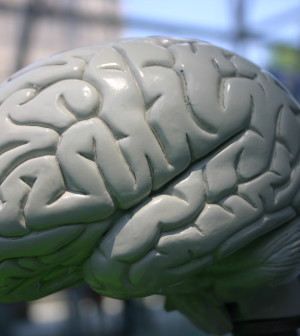- Could Your Grocery Store Meat Be Causing Recurring UTIs?
- Are You Making This Expensive Thermostat Error This Winter?
- Recognizing the Signs of Hypothyroidism
- 10 Strategies to Overcome Insomnia
- Could Artificial Sweeteners Be Aging the Brain Faster?
- Techniques for Soothing Your Nervous System
- Does the Water in Your House Smell Funny? Here’s Why
- Can a Daily Dose of Apple Cider Vinegar Actually Aid Weight Loss?
- 6 Health Beverages That Can Actually Spike Your Blood Sugar
- Treatment Options for Social Anxiety Disorder
One Part of the Brain Doesn’t Age, Study Suggests


At least one part of an older person’s brain can still process information as well as younger people, according to new research.
Researchers compared the spatial attention skills of 60 older adults and younger people. Spatial attention is important for many areas of life, from walking and driving to picking up and using items.
“Our studies have found that older and younger adults perform in a similar way on a range of visual and non-visual tasks that measure spatial attention,” Dr. Joanna Brooks, who conducted the experiments as a visiting research fellow at the University of Adelaide in Australia, said in a university news release.
“Both younger (aged 18 to 38 years) and older (55 to 95 years) adults had the same responses for spatial attention tasks involving touch, sight or sound,” noted Brooks, who is now a research fellow in healthy aging at the Australian National University.
The findings were presented at a recent conference in Australia organized by the Australasian Cognitive Neuroscience Society.
“When we think of aging, we think not just of the physical aspects but also the cognitive [mental] side of it, especially when it comes to issues such as reaction time, which is typically slower among older adults. However, our research suggests that certain types of cognitive systems in the right cerebral hemisphere — like spatial attention — are ‘encapsulated’ and may be protected from aging,” Brooks said.
The results challenge current thinking, she said. “We now need to better understand how and why some areas of the brain seem to be more affected by aging than others,” she added.
This type of research could also improve understanding of how diseases such as Alzheimer’s affect the brain, the researchers said.
Data and conclusions presented at meetings are typically considered preliminary until published in a peer-reviewed medical journal.
More information
HealthinAging.org offers tips for keeping your brain young.
Source: HealthDay
Copyright © 2026 HealthDay. All rights reserved.










